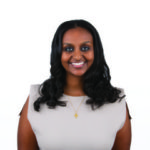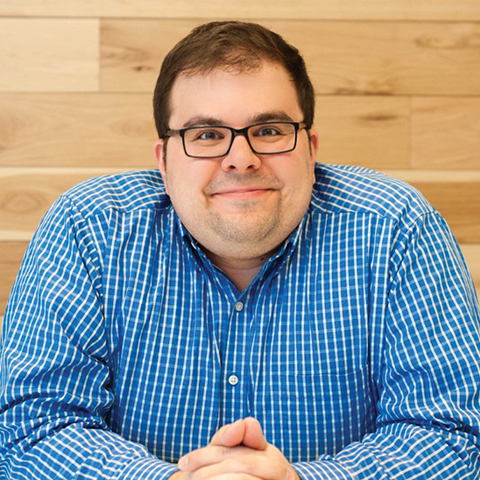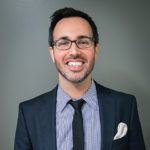How did you get started in the meetings industry?
Like most people’s stories, I fell into the industry by accident. I was living in St. Louis. I had a friend who worked for Marriott in sales at the time, and I was transitioning from pharmaceutical sales, and she was telling me all about her great job with Marriott. I applied at the Embassy Suites – Lacledes Landing to be a catering sales manager and started there, and moved to Boston and ended up doing CVB sales.
I worked for a hotel in Boston, then moved over to the convention bureau, worked there, and I handled the nationwide corporate market, but always looked at my colleagues who were handling the association market and realized that Washington, D.C, was really an incredible place to live and work if you wanted to be in the industry. And personally, it was a great opportunity for me to move down, so I came down to D.C. and went to work for the Dallas convention bureau. After working for them for a couple years, I was recruited [back] to Marriott and kind of did the dance from hotels back to bureaus.

I spent a few years with Marriott [in D.C.] and then went to work for Disney. My boss who hired me [at Disney] went to Gaylord and I followed her to Gaylord, so I went from convention bureaus to a convention-style hotel to selling resorts and entertainment and theme parks. And then opening a convention hotel was exciting, because I was opening the Gaylord Palms Resort [in Kissimmee, Fla.].
And Florida is my hometown, but D.C. is my adopted hometown and I was desperate to come back. When I left Gaylord, there was an opportunity to come back here to be director of sales for Destination DC. [President and CEO] Elliott Ferguson, who was the senior vice president at the time, had moved [to D.C] from Atlanta, and he and I were friends from my Boston days. It just shows how in our industry, if you network and you develop relationships, you have work relationships that really help advance your career. We had a long conversation about what he wanted, and I thought it was a great career move for me and it brought me back to a city that I knew and loved so dearly.
How did you end up leaving sales and moving over to the operational and organizational side with the International AIDS Conference?
Back in 2008, [Destination DC] started the bid for the International AIDS Conference, and I worked very closely with them. As director of sales, my job was really to handle some of our larger, more high-profile accounts, and this was certainly one — just building the grassroots effort for them. I met with local AIDS service organizations. I built a steering committee in order to help understand and recruit this piece of business, and really took a deep dive in our proposal. I wanted to make sure that our proposal was one that not only spoke to D.C. being a great convention town, but really spoke to the [AIDS] epidemic here in D.C. As a result, they felt like I learned their business so well, and they knew that I had contacts in the city and I had developed relationships with the federal government, and that was exactly what they needed — someone who could be a liaison between the conference organizers and the stakeholders here in the U.S. And I guess I did a great job at selling the city, and sold myself, too, and they invited me to come on to be head of their U.S. operations.
What was that experience like?
I can’t say it enough, it was a life-changing experience. I realized that I had spent almost 17 years of my career learning how to build relationships and how to basically ask for business and be a good salesperson, and so much of the skills that I learned were transferable. When you are bringing a conference of that magnitude here, it’s about building relationships, it’s about making sure that everyone’s needs are met, and making sure you’ve got the right product.
But what was life-changing about it was that I was doing something that was good for people living with HIV and the LGBT community at large in the U.S. This was the first time in 20 years that this conference was in the U.S., and just to see people who had never had the opportunity to talk about how the HIV epidemic had impacted their lives, this was their chance to do that. And I just kind of promised myself that if I had the chance to, I would continue to work in a capacity where I deposited something good in the world.
What type of job did you come out of that specifically looking for?
I came out of it looking for a strategic leadership role with either associations or in a health environment. I particularly wanted to work for an association that was need-based or cause- or mission-based. I had worked with Whitman-Walker as a part of the [AIDS] conference and we partnered with them on some activities, and they had an opportunity that became available this past summer and it fit everything that I was looking for. They obviously work very closely with the LGBT community and with people living with HIV. For the last two years, I have built strong relationships in this arena, and my job here is to tell the story about Whitman-Walker and, as they increase and grow and open a new building, to help with the development and communications effort. That is right in the sweet spot of what I’ve been doing for the last two years and really what I’ve done my entire career, which is build awareness about a product.
How has your career as a meeting professional prepared you for your roles with the International AIDS Conference and now with Whitman-Walker?
I think to be a successful salesperson you have to be a sincere person, you have to develop relationships that are truly authentic relationships. When I came into working for the International AIDS Conference, so many of the relationships that we had to develop were with the community and advocacy groups as well as members of Congress, politicians, government officials; and in that respect, people really do look for you to have a sense of authenticity about what you’re doing and really an earnest interest in who they are and what their goals are. And I think I was able to transfer some of those skills to this job, and I really did believe that what we were doing with the conference was opening a door for people who weren’t talking about HIV to speak about it again, which really does help with eradicating the epidemic. And then this role [with Whitman-Walker], I really do believe that people deserve culturally sensitive health care, and understanding some of the unique needs of our LGBT community has helped me the last two years.
What advice would you give to someone who is just getting started in the meetings industry?
I was an adjunct professor in meetings and conventions at Howard University for a couple years, and I would always tell the students that the industry is much larger than it appears. There are so many different avenues, and you can’t be afraid of taking a risk. If you start off as a hotel salesperson or at the front desk, look to see if you want to move into operations, because you can end up being a hotel owner or you could end up working for a hotel company. I would always encourage my students to take the basic principles of hospitality management — customer service, relationship development, organization — and really apply that to almost anything that you want to do. I think the industry prepares you for almost any job out there, because once you learn how to be good in customer service and how to be organized and how to manage your time wisely and how to build authentic relationships, you can succeed at any career path.


